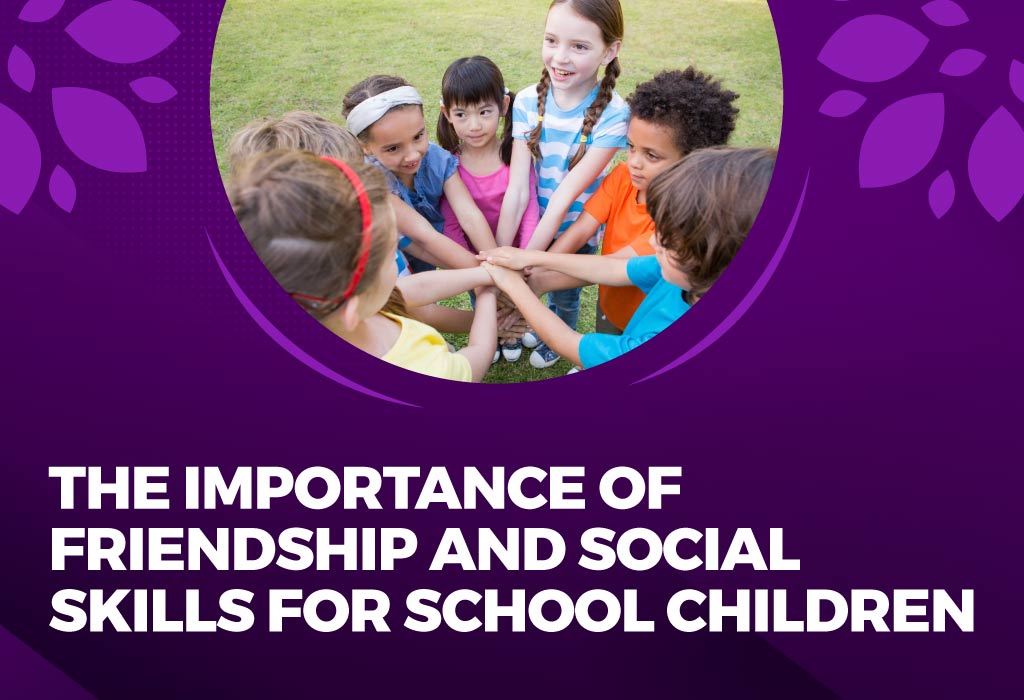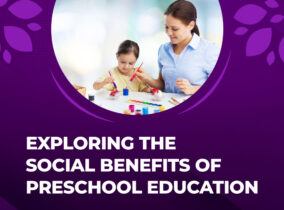The Importance of Friendship and Social Skills for School Children

The years of schooling are an integral part of children’s growth; those are the days where friendship and social skills develop. At the same time that they are developing their academic aptitudes, children should be developing their social skills and forging friendships that can engender belonging. Such elements all come together to lay the foundation for well-being and success in the future. Let us take a closer look at why friendships and social skills are important for school-aged children.
The Role of Friendships in Child Development
1. Emotional Support and Welfare
Friendships provide the emotional support necessary to deal with the complexities of the school environment. Friends share joys and challenges, thus providing a sense of belonging and acceptance. This emotional support is very critical, especially in transition phases of school, for example, at kindergarten and middle school, where first-graders are bullied or looked down upon by other kids. Positive friendships increase a child’s emotional resilience by supporting their ability to manage stress and maintain a positive outlook.
2. Development of Empathy and Understanding
Children will learn from friends how to identify and recognize different perspectives and feelings. Friendships offer divergent perspectives, often resulting in arguments and their subsequent resolution. This builds empathy and social understanding through the working out of disagreements and mutual support that goes hand in hand with these relationships. Despite these occasional spats, they will learn major life lessons about compassion and compromise.
3. Boosting Self-Esteem and Confidence
It can work wonders on a child’s self-esteem to have an appreciating friend. Friends help boost confidence and encourage kids to take up new challenges. Friends celebrate together in times of success and reassure each other during failure, confirming a child’s belief in himself.
The Importance of Social Skills
Effective Communication
One of the most basic social skills is effective communication; it is a root in the foundation of social relationships. Best schools in Vedapatti, for instance, are full of opportunities to practice and improve these skills, from group projects to classroom discussions. The ability to state ideas effectively and listen actively allows children to negotiate through social waters with others and in sharing ideas with others in academic situations and everyday life.
Conflict Resolution
One of the most important social skills to acquire is learning how to handle conflicts constructively. There will come a point in your child’s life where they will meet disagreement with peers, and, therefore, knowing how to find a solution while ensuring that there is fairness met is crucial in the learning ground. This helps the child manage relationships in school but generally equips them with social and professional life skills.
Building and Maintaining Relationships
Making and maintaining friends involves more than just those aspects of compatibility; it needs an understanding of the social cues, some degree of patience, and respect. The process of learning such skills empowers children to form long-standing connections and the art of teamwork; these are not only useful in personal relationships but are considered crucial in finding success later on in the workplace, where teamwork and networking are indispensable.
The Impact of Social Skills on Academic Performance
Improving Collaboration
Social skills such as teamwork and cooperation encourage group work and collaborative projects. Kids, upon learning to work with others effectively, have a clear-cut contribution to group efforts with better results. Collaboration increases the depth of understanding of academic content and problem-solving skills among children.
Facilitating Classroom Participation
Children who are ahead in social skills will participate more in class discussions and activities. They feel comfortable asking questions, expressing their ideas, and contributing to group learning. Active participation enriches the educational experience for a child and can help deliver better academic performance.
Creating a Positive Learning Environment
Positive social behavior fosters a supportive atmosphere in the class. If the children all get along and communicate well, this causes minimal disruptions in class, which creates an environment where learning can be more focused. This has a very positive impact on students, enabling all of them to grow both academically and personally.
Friendships and Social Skills: Embracing Every Opportunity for Socialization
Parents and schools can manipulate environments that allow social interaction to flourish. In this section, group projects, team sports, and extracurricular clubs create an abundance of opportunities for a child to meet other children with similar interests who may be powerful friends. Parents can encourage children to join different social situations, settings, and contexts to develop various social skills and bond with different people.
Role Modeling Good Social Behaviour
Thus, children can pick up from the adults in their lives; therefore, modeling positive social behavior becomes very important. Parents and educators need to model good communication, empathy, and conflict resolution in everyday interactions. Adults act as good role models in giving much-needed guidance on how children can manage social situations and relationships.
Guidance and support during children’s developing social skills are equally important. This would amount to discussing social scenarios, role-playing situations, and feedback that makes the child understand and practice these behaviors. Open discussion of problems and successes in social areas encourages growth and confidence.
Conclusion
Friendships and social skills are a huge part of one’s development in the school years. Best schools in Vedapatti provide the emotional support, empathy, and confidence built with friendship, coupled with good communication competencies, the ability to solve conflicts, and a positive form of collaboration, as the very cornerstone for academic success and personal well-being throughout the developing years of a child. Offering opportunities for socialization, modeling good behavior, and providing support when needed are ways in which parents can help their children develop skills and relationships that will support and ensure success in school and beyond.


